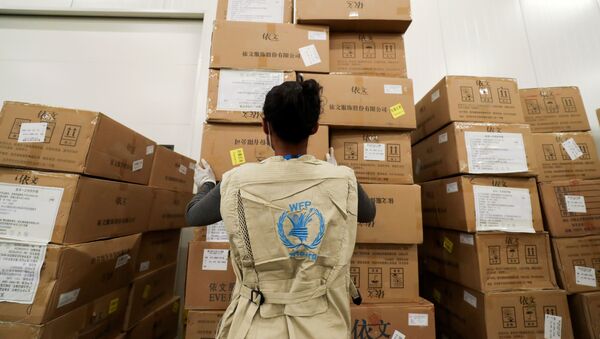The relatively low number of COVID-19 cases reported in Africa so far leave room for hope that the continent may be "spared the worst" of the ongoing pandemic, the United Nations announced in its recent executive summary regarding the impact of the new coronavirus on the continent that was released on 20 May.
Noting that "most countries" in Africa have recorded fewer that 1,000 coronavirus cases, the UN also praised the rapid response of the African Union which "acted swiftly, endorsing a joint continental strategy in February, and complementing efforts by Member States and Regional Economic Communities by providing a public health platform".
The summary points out, however, that it is too early to know the full impact of COVID-19 on Africa, and that the "indirect consequences beyond health", such as food insecurity, loss of income, looming debt crisis and "related political and security risks", for example, "already bring a heavy toll".
UN Secretary General Antonio Guterres has declared that the United Nations is calling for international action to "strengthen Africa’s health systems, maintain food supplies, avoid a financial crisis, support education, protect jobs, keep households and businesses afloat, and cushion the continent against lost income and export earnings".
"I have been calling for a global response package amounting to at least 10 percent of the world’s Gross Domestic Product. For Africa, that means more than $200 billion as additional support from the international community", he stated.
Guterres also noted that African countries should also be provided quick and affordable access to "any eventual vaccine and treatment" for the malady in question.
According to figures cited by the UN, a total of 84,183 COVID-19 cases were reported in Africa as of 18 May, with the coronavirus claiming 2,739 lives.


